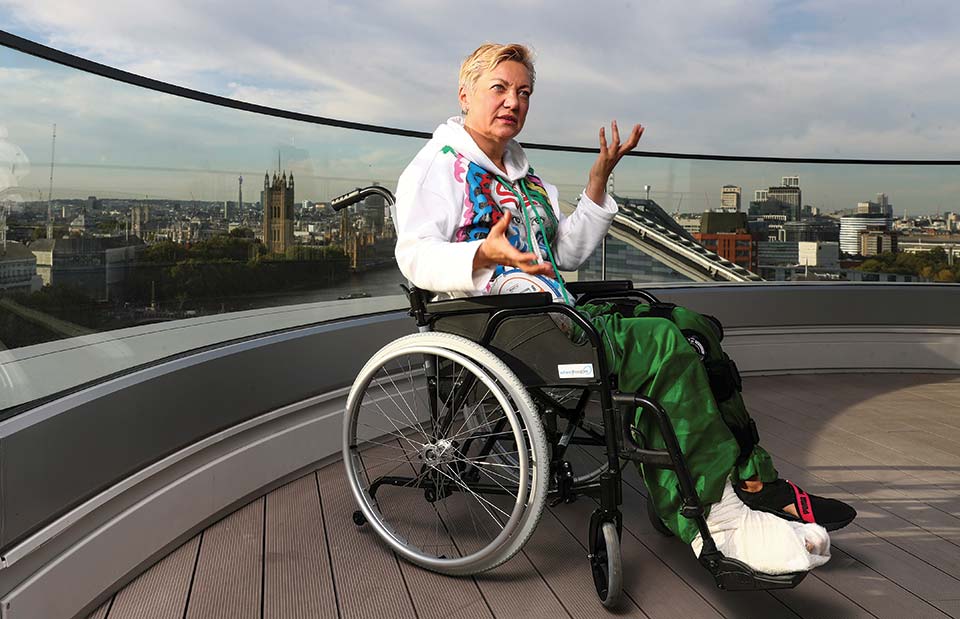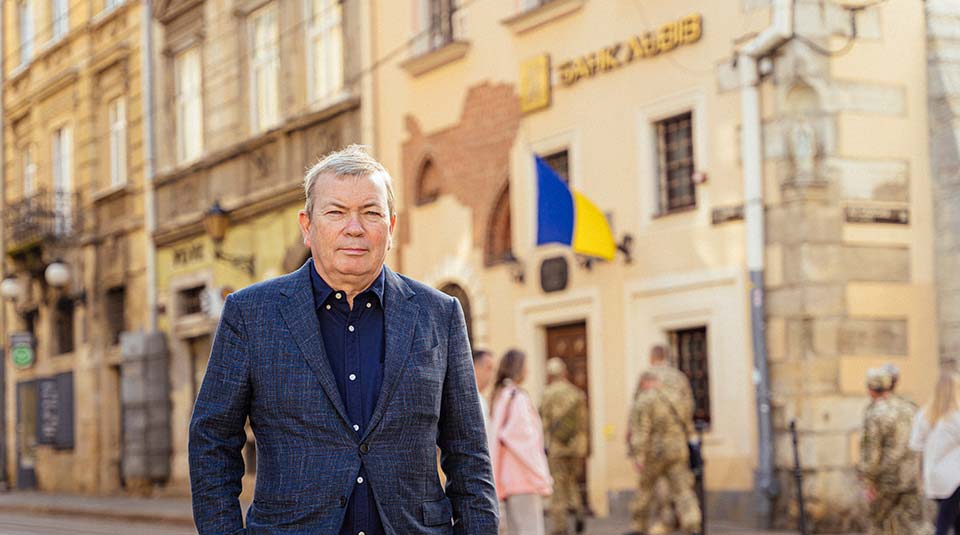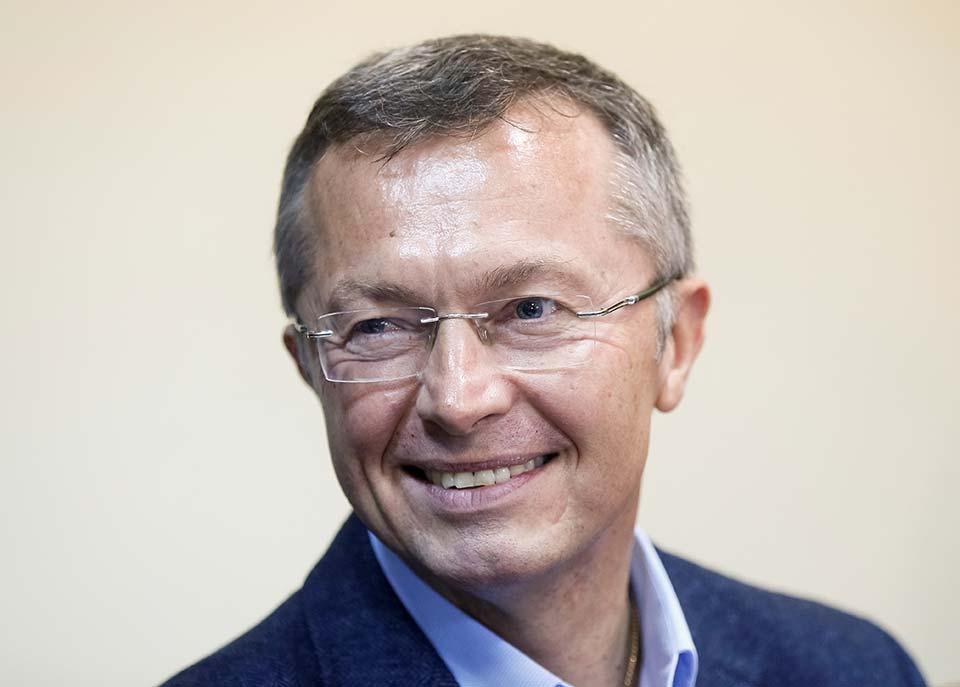More on banking in Ukraine
At 64 and with retirement looming after many years with Austria’s Raiffeisen Bank – 15 years of them in Ukraine – Gerhard Boesch was looking forward to playing more golf. There was a good course near his home on the leafy western fringe of Kyiv where he liked to play.
Then last year the government of president Volodymyr Zelenskyy tapped him to run PrivatBank, the country’s biggest bank, which the government had seized in 2016 from oligarch Ihor Kolomoisky, and prepare it for privatization.
That was supposed to happen next year or 2024 at the latest. Boesch took the job because he wanted “to prove that this bank can be turned around and brought to the market with its extremely attractive customer franchise.”
It would be a signal that a big reform project can be executed in Ukraine.
Plans change – in Ukraine’s case rather brutally. PrivatBank has been largely turned around on Boesch’s watch, but now is no time to bring a bank to market.
“We’re now working on a deadline of 2024 or 2025,” Boesch tells Euromoney.
As for the golf course, it is just west of Bucha and Irpin, which has seen some of the most appalling atrocities of the conflict.
“The course has been totally destroyed by the Russians,” says Boesch. He is not planning on playing again anytime soon.
Wartime footing
He has, however, been impressed by how his staff and Ukrainians generally have adapted to a wartime footing.
“Everybody is in a fighting mood, very motivated,” he says. “I expected salaries would be cut, people would be unemployed, not knowing if they can continue to pay their pensions. I expected that mobile services and the internet would not work anymore from day one, lines would be cut and that data centres would be taken out by the Russians as a strategic goal to destroy the financial infrastructure of the country. That did not happen at all.
“We have had zero downtime caused by the war: there was no run on the banking system. We’ve had massive hacking attacks directed at us and we were very successful in defending ourselves, there was practically no disruption. Our number-one priority is survival and operational stability.”

Boesch is well placed to observe Ukrainian consumer behaviour: PrivatBank operates 1,400 branches, 7,000 ATMs and around 20,000 self-service terminals.
“We closed a lot of branches in the first few days, but then we started to reopen them again” he says. “We wanted to be operationally present in all regions, in all parts and all cities where we could justify it and it was not too dangerous.”
In Vinnytsia, a PrivatBank staffer died in a bombing and two others were injured and treated in intensive care.
“We had Bucha, and Kharkiv, Kherson and Mariupol, but we’ve managed since to keep 80% of our total branches open and 80% of the ATMs, including in places like Mariupol,” says Boesch.
To underline his point, he plays Euromoney a video shot in mid-July, time stamped 8:58am. It is of a PrivatBank branch opening for business in bomb-battered Saltivka in the northern part of Kharkiv, Ukraine’s second-biggest city.
“Customers are coming in, getting their pension,” Boesch marvels. “Most of them are elderly people, they’re not desperate, they’re not panicking, they’re opening accounts so they can get this access. Our people fight and do whatever is necessary, whatever it takes. They spent the night in the shelter under permanent artillery attack and that morning at nine o’clock, they opened the branches.”
They spent the night in the shelter under permanent artillery attack and that the morning at nine o’clock, they opened the branches
Gerhard Boesch, PrivatBank
Euromoney visits a PrivatBank branch in Bucha, which has seen some of the worst of the war. The branch is busy, orderly and normal.
“We want not only to survive as a bank,” Boesch explains. “We want to be able to tell people that their money is safe and to be able to pay back all the money to everybody whenever they need it.”
Boesch reckons probably one and a half million PrivatBank customers are now abroad, needing access to their money every day. He explains that as Ukraine starts to normalize, so too will the bank.
“The operational result before risk provisions is still very good,” says Boesch. “We played a very, very big role in the agricultural season, which started in March. We were able to disburse a lot of loans. I’m quite optimistic that the bank will have enough financial strength on its own and will not need a recapitalization. It’s more than I would have expected six months ago.
“People have doubled and redoubled their effort; they will just never give up.”








